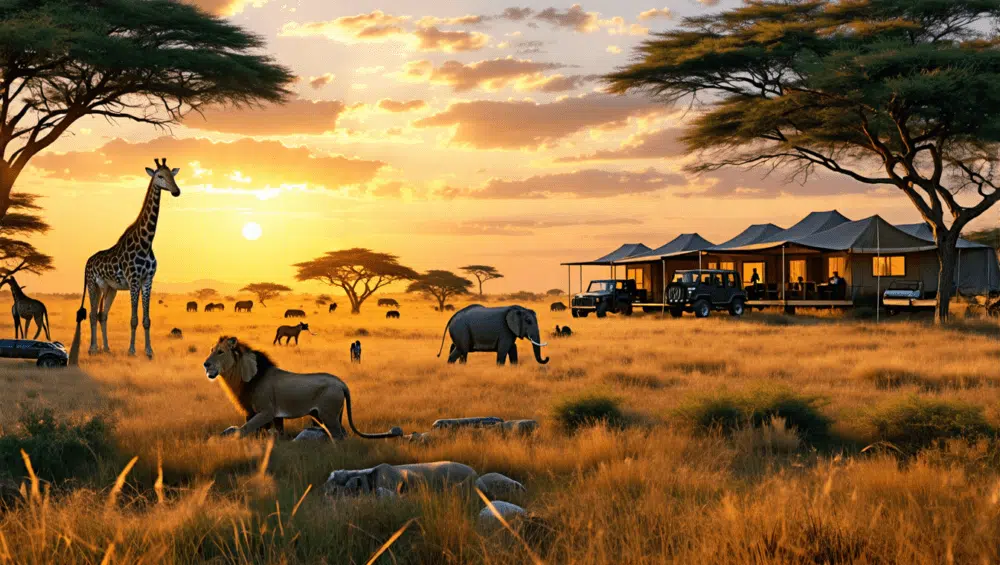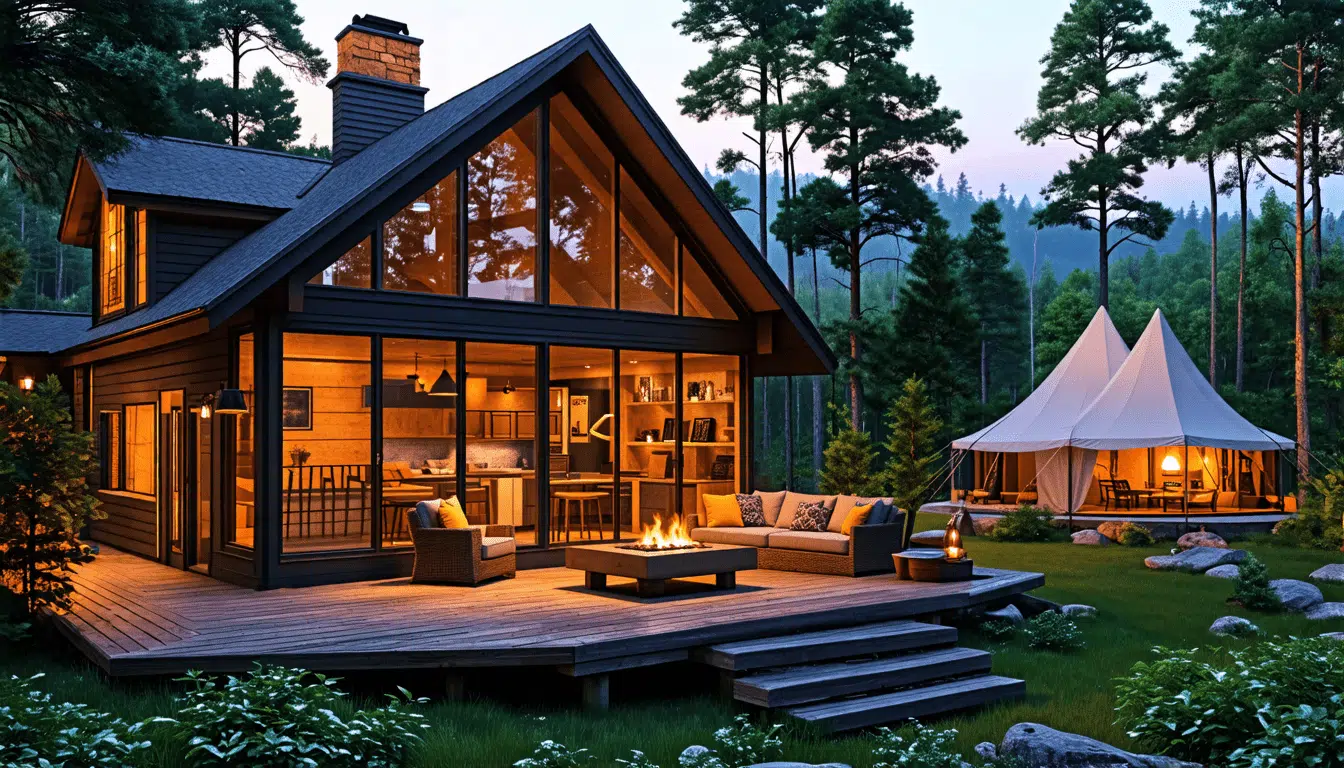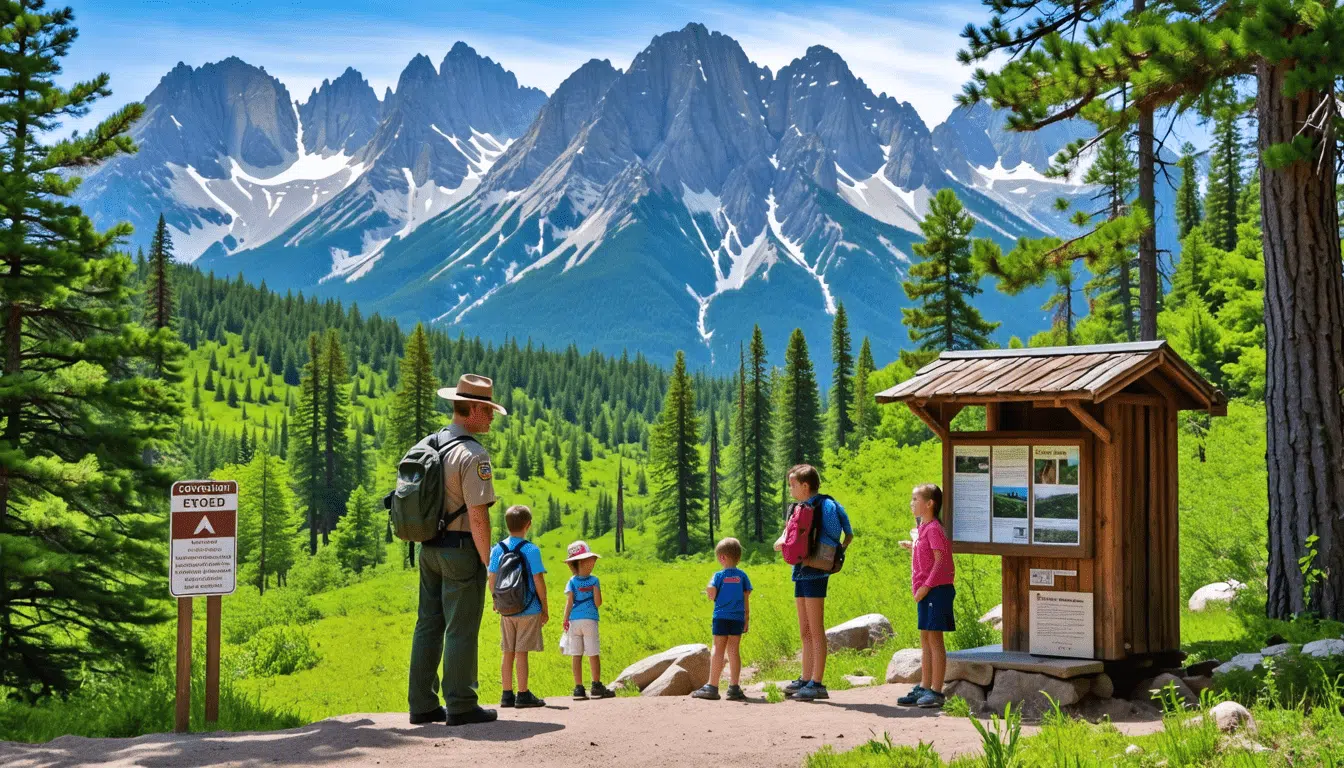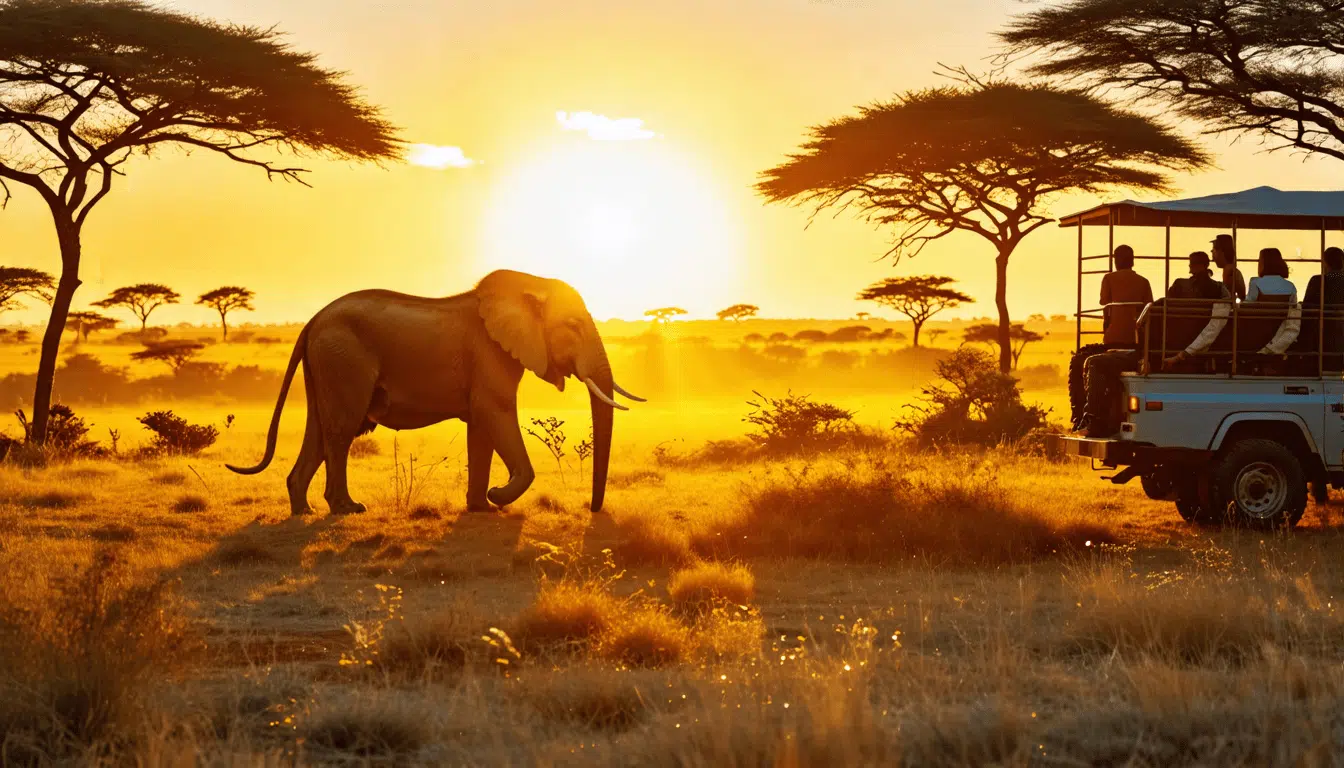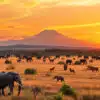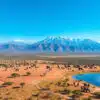Have you ever dreamt of watching a pride of lions lazily bask in the golden hues of a Kenyan sunset or witnessing the awe-inspiring Great Migration right before your eyes? Kenya’s safari holidays offer these once-in-a-lifetime experiences, but you might find yourself wondering, “Why aren’t Kenya safari holidays cheap?” Well, let’s dive into the nitty-gritty of it.
First, let’s talk about the cost structure. Going on a safari isn’t as simple as booking a hotel room for the weekend. There are numerous factors contributing to the price—everything from accommodation and transportation to park entry fees and guided tours. Think about it: you’re not just paying for a place to sleep; you’re investing in a full-blown adventure. That semi-luxurious tent by the watering hole? It doesn’t come cheap. But oh, the experience it offers!
And speaking of high-quality service and safety standards, you wouldn’t want to skimp on these, right? The safety protocols, experienced guides, and reliable transportation all factor into the overall cost. You wouldn’t want to find yourself lost in the savannah without a seasoned guide, would you?
Another thing to consider is seasonality. Just like airline tickets and hotel rates, safari prices fluctuate depending on the time of year. Peak seasons, when you’re most likely to see wildlife in abundance, naturally come with a heftier price tag.
Also worth mentioning are the luxurious accommodation options. You’re not just camping out under the stars (though you certainly can if you’re into glamping). High-end lodges and eco-lodges provide not just a place to rest, but a complete immersive experience. Imagine waking up in a plush, king-sized bed to the sounds of nature, with amenities and services that make even the most discerning traveler feel pampered.
Now, let’s understand the role of conservation and community support. Safari tourism is deeply intertwined with conservation efforts and local community support. Those conservation fees and national park entry costs? They’re crucial for maintaining the natural habitats and supporting the local economy. Sustainable tourism initiatives ensure that your visit contributes positively, preserving these magnificent ecosystems for future generations.
So, is it worth it? Absolutely. The value for money that a Kenya safari holiday provides is unparalleled. You’re not just paying for a trip; you’re securing exclusive wildlife encounters and personalized experiences that create long-lasting memories. It’s an impactful journey that offers more than just pretty pictures for your social media; it’s a transformative travel experience.
Understanding the Cost Structure of Kenya Safari Holidays
Breakdown of Typical Expenses
Ever wondered why Kenya safari holidays seem to come with a hefty price tag? Let’s break it down. There are a variety of expenses that contribute to the overall cost. Think about it: first, you need to fly into Kenya. International flights aren’t always cheap, especially if you’re flying from North America or Europe. Once you land, there’s domestic transport—whether by road or small aircraft to your safari destination.
Then, let’s consider the accommodation. Most safari lodges and camps are tucked away in remote, often pristine wilderness areas. The logistics of operating in such settings are complex and costly. These places need to be self-sustaining, meaning they generate their own power, purify their own water, and sometimes even grow their own produce.
And we can’t forget about the game drives! Hiring experienced guides and maintaining sturdy 4×4 vehicles come at a price. Add in park entrance fees, meals, and sometimes even special permits, and you start to get the picture.
Factors Influencing Prices
Now you’re probably wondering: what specifically drives up these costs? A handful of factors play a big role. For one, the location of your safari matters. Popular spots like the Masai Mara might be pricier due to their high demand and renowned wildlife population. Meanwhile, secluded or private reserves can offer more exclusivity but at a higher cost.
Want to travel during the Great Migration? That’s a peak season, and prices tend to skyrocket compared to the off-season. Even the level of luxury you choose matters. High-end lodges with all-inclusive packages will naturally cost more than budget-friendly campsites—but they promise an unforgettable experience.
High-Quality Service and Safety Standards
Let’s be honest, nobody wants to skimp on safety, right? Safaris involve close encounters with wildlife, and these operators invest significantly in ensuring your trip is secure. Highly trained guides, quality vehicles, and reliable communication systems don’t come cheap but are worth every penny.
Additionally, service quality is paramount. Kenya’s safari industry prides itself on offering world-class hospitality. From gourmet meals to personalized itineraries, the service you receive is part of the entire experience, contributing to the overall cost.
Seasonality and its Impact on Costs
Have you ever noticed how prices for flights, hotels, and even safaris vary depending on the time of year? Kenya’s safari experience is no different. The peak season—usually during the dry months and the migration period—is when tourists flock to the parks, pushing prices up. Conversely, the off-season might offer lower rates, but the experience could vary due to weather conditions and wildlife visibility.
I remember when I planned my first safari trip. I was eyeing the Great Migration, a natural spectacle unlike any other. But the prices during that time were staggering! Ultimately, I decided to go during the shoulder season, saving some bucks while still getting an incredible experience.
So, when planning, think about what you want to see and do, and be prepared to align your budget accordingly. Sometimes, a little flexibility can go a long way in managing costs while still ensuring a memorable safari adventure.
Luxurious Accommodation Options
Upscale Lodges and Camps
When you’re dreaming about a safari in Kenya, envisioning the sights, sounds, and thrilling encounters with wildlife is easy. But picture this: winding down your day at an opulent lodge, with fine dining under a star-studded sky. Think of upscale camps offering breathtaking views right from your tent. These are not just any accommodations; they’re a slice of paradise. And they don’t come cheap.
First, let me take you to a place like the Angama Mara—yes, it’s that lodge perched right on the edge of the Great Rift Valley. Here, you’re surrounded by panoramic views straight out of a movie. With butler services and in-room massages, you’re not just paying for a bed to sleep in but an entire experience. And let’s not forget the Ol Donyo Lodge, where rooms come with private plunge pools and star beds for sleeping under the African sky. These lodges are macrocosms of luxury, designed to make you feel like royalty.
Unique Experiences: Glamping and Eco-lodges
Ever heard of glamping? Picture camping but with a glamour twist. You get the charm of sleeping under canvas and waking up to the sounds of nature, but without sacrificing comfort. Take the Hemingways Ol Seki Mara Camp for instance. Here you get plush bedding, en-suite bathrooms, and even WiFi, all in a canvas tent. It’s camping, but not as you know it.
Then, there are eco-lodges like the renowned Borana Lodge, where your stay actively contributes to sustainability efforts. Built to blend into the environment, these lodges are eco-friendly yet remarkably chic. They offer solar power, organic meals, and a sense that you’re part of the conservation effort. Think about it: you’re not just paying for a room but investing in sustainable travel. Wouldn’t that make you feel good about where your money’s going?
Amenities and Services Provided
“Wait, there’s more?” you might ask. Oh, absolutely. These accommodations go beyond the basics to offer an array of top-notch services and amenities. Imagine gourmet meals prepared by world-class chefs, often using locally-sourced ingredients. Picture sundowners over the Masai Mara, champagne in hand, as you discuss the day’s adventures with new friends.
And it’s not just about the food and drink. Some lodges provide exciting perks like hot air balloon rides, guided bush walks with Maasai warriors, and night game drives where you can catch a glimpse of nocturnal creatures. Many also have spas offering treatments inspired by ancient African traditions. I mean, who knew you could get a massage in the savannah?
So, when you’re considering the overall cost of a Kenya safari holiday, remember: you’re not only paying for a place to sleep. You’re shelling out for the unique experiences, the luxury, and the impeccable service that make your trip unforgettable. Quite the bang for your buck, wouldn’t you say?
The Role of Conservation and Community Support
Conservation Fees and National Park Entry Costs
Ever wondered why part of your safari package comes as hefty park entry fees? It’s not just about access. These fees are crucial for the conservation efforts that protect the magnificent wildlife and their habitats. Imagine walking through the Maasai Mara or Tsavo East without seeing the Big Five – elephants, lions, leopards, rhinoceroses, and buffalo. Those stunning creatures need protection, and your money directly funds anti-poaching units, habitat restoration, and scientific research. It’s a worthy cause, don’t you think?
Take the Nairobi National Park, for instance. A significant chunk of the entry fee supports the Nairobi Animal Orphanage within the park. This place acts as a refuge for abandoned or injured animals, nursing them back to health. So, while that entry fee might pinch slightly, it plays a pivotal role in caring for and conserving Kenya’s wildlife heritage.
Partnerships with Local Communities
Now, let’s shift to the heart of Kenya, where many local communities coexist with the wildlife. Safari operators often have agreements with the indigenous tribes, like the Maasai, providing them with a source of income through tourism. Have you ever tried the Maasai beaded jewelry or experienced a traditional Maasai dance? Those aren’t just performances – they’re part of a broader initiative to support and sustain local cultures.
I remember visiting a Maasai village during one of my safaris. It wasn’t just a sightseeing tour; it was an eye-opening experience learning about their way of life. The financial support from tourism helps build schools, healthcare centers, and provides employment opportunities for these communities. They, in turn, become active players in conservation, safeguarding the very wildlife that tourists travel thousands of miles to see. It’s a symbiotic relationship, truly benefiting both ends.
Sustainable Tourism Initiatives
Sustainable tourism might sound like a buzzword, but in Kenya, it’s a practice that’s making tangible differences. Safari companies are increasingly adopting eco-friendly practices, from zero-waste policies to solar-powered lodges. Have you ever stayed in an eco-lodge? If not, imagine a comfortable, luxurious stay where your water is heated by the sun and electricity comes from renewable sources. And it’s not just about feeling good – it’s a step towards preserving the environment for future generations.
Then there are the reforestation projects, often funded by safari operations. Kenya’s forests are essential for the climate and the myriad species that call this land home. By paying that premium price for your safari holiday, you’re contributing towards planting trees and restoring these vital ecosystems. And let’s not forget the marine side of things; coastal safaris in places like Diani Beach often involve coral reef restoration projects.
Consider the Ol Pejeta Conservancy, one of the most notable examples of sustainable tourism in action. They’ve created a sanctuary for the remaining northern white rhinos and have numerous community projects, from healthcare to education. Your visit – and those conservation fees – helps protect these rare animals and supports local livelihoods.
So next time you look at the price tag for a Kenya safari holiday, remember that it’s more than just a trip. It’s an investment in conservation, culture, and sustainability. Your funds are making a global impact, and that’s something worth every penny, don’t you think?
Value for Money: Why It’s Worth the Investment
Exclusive Wildlife Encounters
When was the last time you saw a lion up close? Probably on TV, right? Well, that’s why a Kenya safari holiday is something special. Imagine the thrill of witnessing a lion leisurely stroll past your jeep or watching a herd of elephants at a watering hole. These experiences aren’t just pictures on a screen; they’re raw, wild moments that make your heart race. The exclusivity of such encounters—away from the crowds and in the presence of seasoned guides—means you’re not just getting your money’s worth. You’re collecting stories that will last a lifetime. Trust me, no snapshot can do justice to the adrenaline rush you feel in the savannah.
Personalized Safari Experiences
Let’s be honest. Deviating from the beaten path often makes the journey more memorable. Whether it’s a private game drive designed to suit your interests or a bush dinner under the African stars, the personalization of your Kenya safari is unparalleled. I remember my guide asking if I preferred birds or big cats and tailoring our day to maximize sightings. These bespoke experiences ensure your trip is not just another package deal. Instead, it’s your unique adventure brought to life. After all, who wouldn’t want to feel like the entire savannah was set up just for their visit?
Long-lasting Memories and Impactful Travel
Ever heard of the saying, Travel is the only thing you buy that makes you richer? Well, a Kenya safari epitomizes that. From the joy of learning about Maasai culture directly from the tribe to the thrill of a night drive using special spotlights, the impact of such a trip goes beyond just a vacation. Moreover, your financial investment often supports conservation efforts and local communities, making your travel ethically rewarding. Knowing that your visit contributes to preserving wildlife and supporting local livelihoods adds a sense of fulfillment that few other holidays can match.
The next time you flinch at the price tag of a Kenya safari, think about it this way: you’re not merely paying for a holiday. You’re investing in extraordinary experiences, customizing your adventure, and contributing positively to the world. Isn’t that worth every penny?
In conclusion, while Kenya safari holidays aren’t cheap, they offer exceptional value for money. The cost structure, influenced by necessary expenses like high-quality services, safety standards, and the impact of seasonality, ensures that the experience is unparalleled. Luxurious accommodations, whether in upscale lodges or unique eco-lodges, elevate the experience, providing comfort and unique, memorable stays. Moreover, the role of conservation fees and community support emphasizes the broader impact of your investment. By contributing to sustainable tourism, you help preserve Kenya’s incredible wildlife and support local communities.
Ultimately, the exclusivity of wildlife encounters, the personalized nature of the safari experiences, and the lasting memories created make the expenses worthwhile. Investing in a Kenya safari holiday means investing in a trip of a lifetime, one that offers real, impactful travel experiences and a deep connection with nature. The richness of the adventure far outweighs the cost, ensuring that your journey through Kenya’s breathtaking landscapes is worth every penny.

